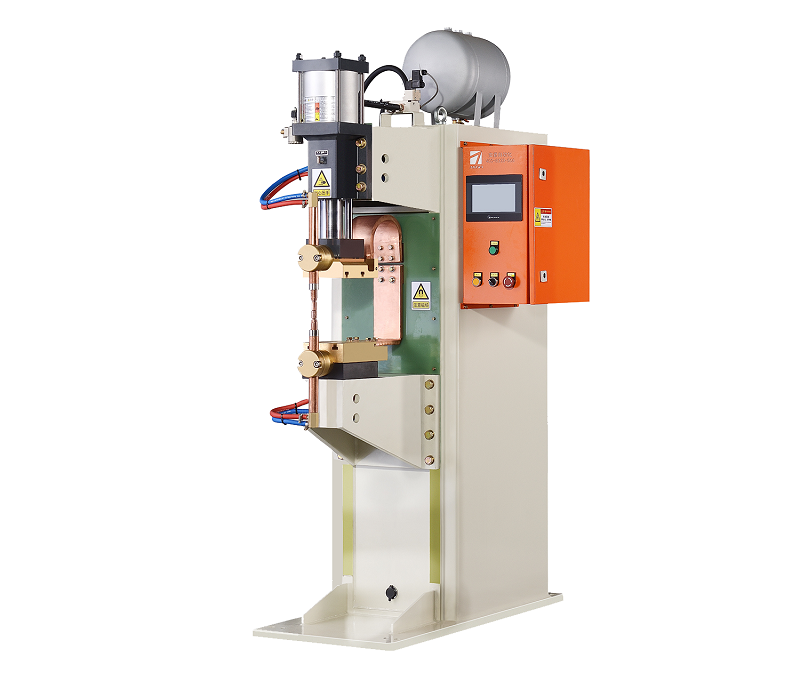The efficiency of medium-frequency inverter spot welding is a critical factor in achieving productive and cost-effective welding operations. Several factors can impact the overall efficiency of the welding process. In this article, we will explore the key factors that influence the efficiency of medium-frequency inverter spot welding.

- Welding Parameters: The selection and optimization of welding parameters significantly affect the efficiency of spot welding. Parameters such as welding current, welding time, electrode force, and electrode geometry should be carefully adjusted to match the specific requirements of the workpieces. Optimizing these parameters ensures efficient heat generation and proper fusion, reducing the time required for each weld.
- Electrode Condition: The condition of the electrodes plays a vital role in welding efficiency. Damaged, worn-out, or improperly shaped electrodes can result in poor weld quality and reduced efficiency. Regularly inspecting and maintaining the electrodes, such as reshaping or replacing them when necessary, ensures optimal performance and prolongs electrode life.
- Workpiece Preparation: Proper preparation of the workpieces is essential for efficient spot welding. Thoroughly cleaning the workpiece surfaces and removing any contaminants or oxide layers promotes better electrical conductivity and improves the welding efficiency. Additionally, ensuring precise alignment and secure clamping of the workpieces minimizes energy loss and enhances the overall efficiency.
- Machine Performance and Maintenance: The performance and maintenance of the medium-frequency inverter spot welding machine directly impact its efficiency. Regular calibration and maintenance of the machine, including checking for loose connections, ensuring proper cooling, and verifying the accuracy of the control system, contribute to consistent and reliable performance. Well-maintained equipment operates efficiently, reduces downtime, and maximizes productivity.
- Operator Skill and Training: The skill level and training of the welding operators play a crucial role in achieving efficient spot welding. Operators who are properly trained and experienced in operating the medium-frequency inverter spot welding machine can optimize the welding process, quickly identify and troubleshoot issues, and implement efficient welding techniques. Continuous training and knowledge enhancement ensure efficient operation and optimal use of the equipment.
- Process Optimization: Continuous improvement and process optimization are key factors in enhancing the efficiency of spot welding. By analyzing welding data, identifying bottlenecks, and implementing process modifications, manufacturers can streamline the welding process, reduce cycle times, and increase overall productivity.
To maximize the efficiency of medium-frequency inverter spot welding, it is important to consider various factors such as welding parameters, electrode condition, workpiece preparation, machine performance, operator skill, and process optimization. By carefully addressing these factors, manufacturers can enhance productivity, reduce production costs, and achieve high-quality welds in a timely manner. Continuous monitoring, maintenance, and improvement of the welding process will contribute to long-term efficiency gains and improved overall performance.
Post time: Jun-25-2023


